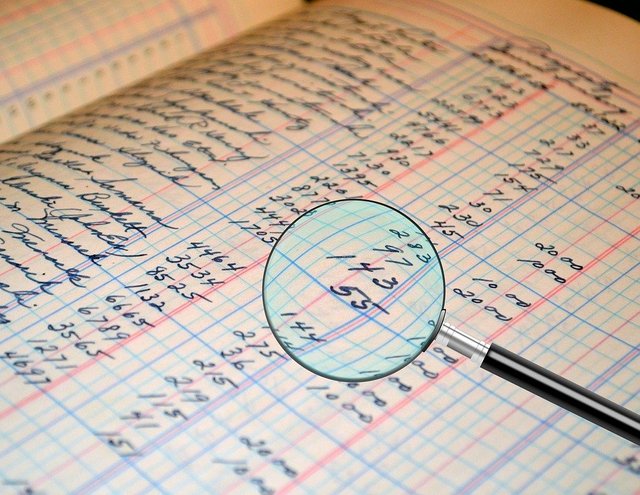An Overview of Mining - UNDERSTANDING THE BLOCKCHAIN; Episode 8
Hey there! Welcome to another episode of Understanding the Blockchain.
You can check out previous episodes here:
1. Episode 1 | This Is How Money Works
2. Episode 2 | Is Digital Money the Answer?
3. Episode 3 | Before Bitcoin, Earlier Attempts at Crypto
4. Episode 4 | Finally, Bitcoin!
5. Episode 5 | How is Crypto Acquired?
6. Episode 6 | A Bitcoin Transaction in Depth
7. Episode 7 | An Overview of Mining

Own Image, Created by @gamsam with Image from Pixabay | Photographer: rebcenter-moscow
What do these miners actually do then?
Bitcoin miners have 3 major responsibilities.
Storing the ledger
As you well remember, we have gone over this. Bitcoin miners store the entire bitcoin ledger from the onset of the blockchain back in 2009.
All the transactions ever made on the blockchain are on all the copies of the ledgers distributed across all the miners’ computers on the globe. As at today, there are about 549.54 million transactions on the blockchain and the entire ledger is over 300 gigabytes of data.

Source: Pixabay | Photographer: Tumisu
They are also responsible for not only storing the ledger, but also telling each other about the ledger as we discussed earlier.
Relay transactions
When somebody broadcasts a bitcoin transaction, it hits just a few miners and each miner on average is connected to about 8 others. So, when a miner sees a transaction, it broadcasts it to about 8 other miners who broadcasts it to other miners till it gets across the entire network. This whole process takes about 10-15 seconds to get to all 10,182 miners.

Source: Pixabay | Photographer: Free Photos
What then happens when you spend bitcoin from the same address form two different parts of the world if it takes up to 15 seconds to get synchronized. We’ll talk about that later, but what basically happens is that the relay from the two different parts get together somewhere in the middle but the first transaction is honoured and the latter is ignored.
This case is called a “Double Spending” and we’ll talk in depth on how the network deals with that and how it is prevented.
Verify transactions
Miners verify transactions broadcasted on the network and ensure they are legit. Things like:Does the sender have sufficient funds?
How do the miners know that?
Remember that the miners have the entire transaction ledger so even though they do not have the total balance of a bitcoin address, they can calculate and total up all the transactions to and from an address. This allows the miners to derive the balance of every address by going through the ledger.
Is the transaction authentic?
When a miner receives a transaction, they need to verify whether the actual sender has sanctioned the transaction. A miner needs to verify that the sender actually has the keys to unlock the address; that the sender has actually provided authorization to send the bitcoin.
Since the ledger is public and the balances of each address can be obtained, one may try to send a false transaction from an address that is not theirs. If you send a false transaction, you won’t be able to provide a valid key for that transaction. The miners will see this invalid key and signature and reject the transaction.
Who can mine?
Anyone can actually mine but to be honest, it’s a little bit late. If you were to run an average 2020 grade laptop all day long, 24 hours for a year, you would earn less than a penny in the whole year.The reason for this is that general purpose laptops and desktops can not run the specific tasks required of miners. There are special devices made for mining which run on a GPU rather than the conventional CPUs that run general purpose computers. These special computers however consume a whole lot of energy. This is why access to cheap energy is another thing that also affects the profitability of mining.
Note though that there are other more profitable mining opportunities in other cryptocurrencies.
So, we’ll stop here for today and in the next episode, we’ll dive into cryptography, the “crypto” part of cryptocurrency. Remember to drop your comments; anything you don’t understand, or anything you’d like to add.
Is mining related to witnessing?
And is witnessing profitable?
yes, mining is a lot more like witnessing on web3 platforms like hive and steem. I can't say if it is profitable, but it is enjoyable
Witnessing for steem is equivalent to mining for bitcoin. Witnesses also run nodes. Witnessing is somewhat more profitable than mining though for an average user. It is considerably cheaper to become a witness than to become a bitcoin miner.
So, yes. Witnessing is profitable especially when you're among the top 20 witnesses.
I would love to learn more about witnessing. If you even decide to write an in depth article on it, please consider tagging me or adding the link to my latest post.
Following you to read your future posts :)
No problem, will definitely do.
Cheers :)
Hello dear friend, very interesting your publication, the truth is a somewhat complex issue for many, but with users like you to understand them becomes easier. Excellent information.
Thanks a lot. That is exactly the point, to make it easier for people to understand.
I love proof of work blockchains, but validators on proof of stake blockchains also do a good job protecting the blockchain. Somehow a feel like the future is POW, but I see a future where both of them co-exist
I think both are inevitable on the long long run and arguably, both have their benefits. Different people have different ideas about it. The whales are gonna love proof of stake of course... winks